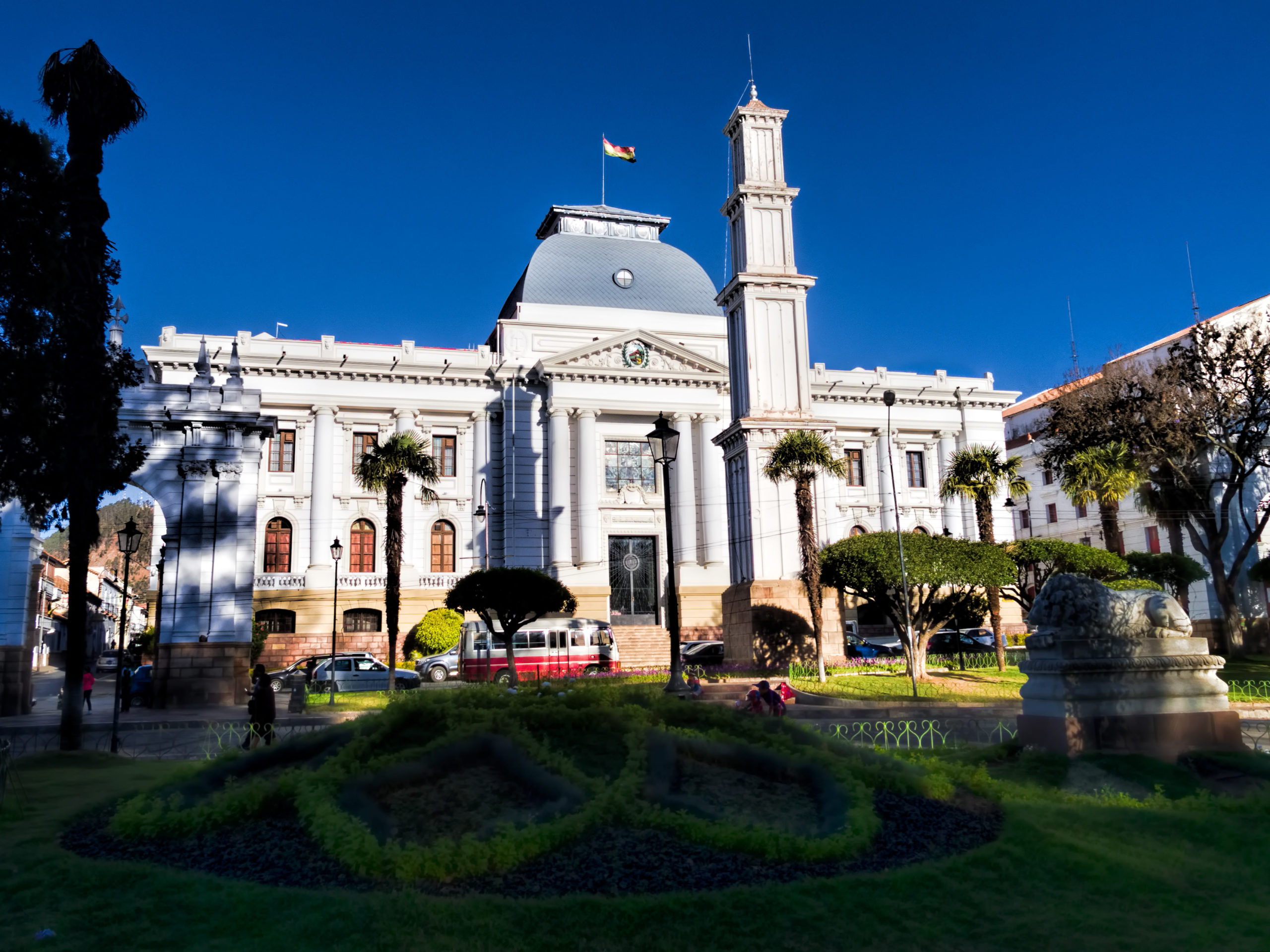RIO DE JANEIRO, BRAZIL – The main opposition parties and citizen institutions critical of the far-left government of Luis Arce denounced that the country’s court system became a “political weapon” to persecute these sectors and to cover up the violations committed by the government, for which they insisted on demanding a judicial reform.
The denunciation is part of a joint statement issued this Sunday by the opposition forces Comunidad Ciudadana, of former president Carlos Mesa, and Creemos, of the governor of the eastern region of Santa Cruz, Luis Fernando Camacho, together with the Santa Cruz Civic Committee and the National Committee for the Defense of Democracy (Conade).
Read also: Check out our coverage on Bolivia
The document states the position of these sectors for compliance with the recommendations of the report of the Interdisciplinary Group of Independent Experts (GIEI) sent by the Inter-American Commission on Human Rights (IACHR) on the 2019 crisis in Bolivia.

Bolivians “do not have a judicial system that defends the people, on the contrary, this has become a political weapon of Intimidation, persecution, and imprisonment”, denounced the parties and entities.
They also accused the government of not wanting to comply with the recommendations of the GIEI on the “urgent changes” required by the judicial system to have “independent, impartial, suitable prosecutors and judges with high credibility and citizen confidence”.
“This is the only way for the investigations and criminal proceedings for human rights violations, pointed out in the same report, to give rise to a true act of justice, especially about the loss of human lives, under the premise that all should be worth equally before justice,” the statement said.
The opponents accused the Arce government of maintaining the “submission and dependence” of judiciary members to the Executive branch “with political and repressive objectives”.
They also considered that the criminal proceedings instituted against detractors of the governmental Movement Towards Socialism (MAS) are “in fact actions of political-judicial lynching” while the Justice “closes and dismisses cases” that involve people of the ruling party.
To achieve “social peace and harmony” in the country, these sectors considered “indispensable” that the investigations for the events of 2019 be carried out with a “renewed” Public Prosecutor’s Office and Judiciary and that the independence and suitability of its operators be guaranteed.
They also requested that the imprisoned opponents, whom they consider “political prisoners”, defend themselves in freedom and cease the “apprehensions for political reasons”.
GOVERNMENT POSITION
Through the Minister of Justice, Iván Lima, the Arce government has considered that the change of judiciary positions proposed by the opposition is a “judicial coup d’état,” which, in his opinion, seeks impunity.
Lima questioned on the eve that Mesa’s party wants to condition this judicial reform its support to the approval in Parliament of the trials of responsibilities against the transitory management of Jeanine Áñez for the events of 2019.
“His political line is impunity, silence, impacting the lives of Bolivians and not respecting their pain of all these families in the solution of justice,” said the minister quoted in a statement from his office.
The report presented this month by the GIEI concluded that there were “serious human rights violations” during the 2019 crisis in the country.
The group considered it “fundamental” to advance in the investigations and prosecutions for those events. However, it also warned about “serious deficiencies” of the Bolivian state to guarantee the “independence and autonomy” of the Judiciary and the Prosecutor’s Office.
Bolivia is embroiled in a controversy between the ruling party, which claims that Evo Morales was overthrown by a coup d’état, and his detractors, who maintain that the crisis was a consequence of the allegations of fraud in favor of the former president in the failed general elections of 2019, which were later annulled.
The former interim president Jeanine Áñez has been imprisoned since March, with deteriorating health, investigated at the government’s request in the so-called “coup d’état” case.

